Bathroom Blues
looking she said I forget
Naomi Pacifique’s new short film dwells in melancholy and unlocks a form of intimacy that is unlike anything else we’ve seen bodies share on screen.
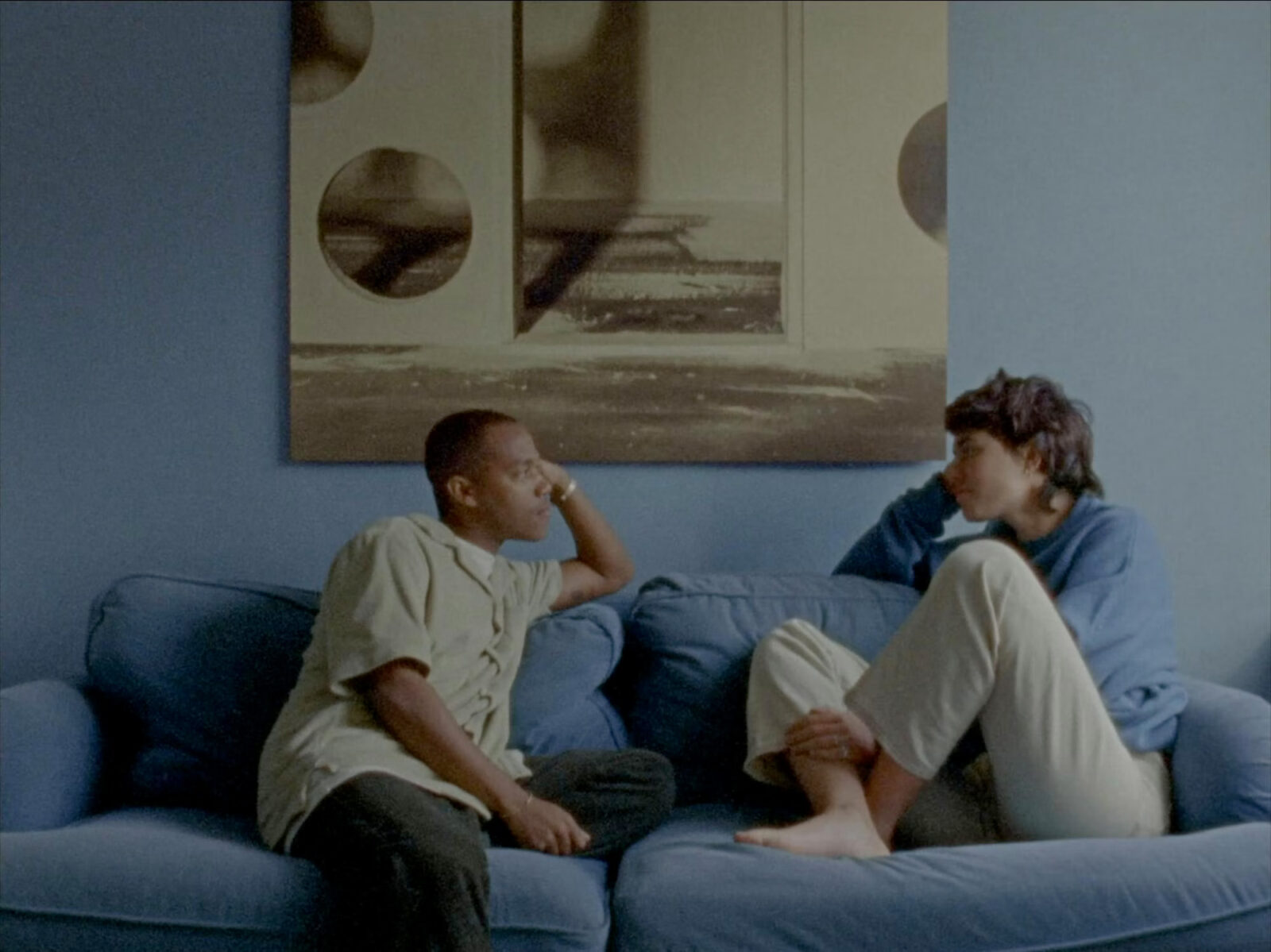
Not the bedroom but the bathroom is the heart of your home, whether you live alone or not. The bed is safe, yes: it’s where you crawl in after an exhausting day and await your lover, but also where you find yourself at the mercy of Hypnos, the god of dreams—it is a land of silent negotiations and surrender. But a bedroom’s fixity gets in the way: the fingerprints of Victorian times and their repression are still visible. Its autonomy is a statement, the lock on the door implying that this is where adulthood resides. But in our tiny urban homes, jumbled together in apartment buildings, big or small, bathrooms are much more of a safe haven—not simply a site of cleansing, but of intimacy, wet and moist.
In the bathroom, time flows differently, and there are different pleasures to be experienced, either alone or shared. It is under the shower that we meet Lou, the protagonist of Swiss-Dutch artist Naomi Pacifique’s new short film, looking she said I forget. Lou fills the 4:3 frame in close-up, but it’s not her face we see—she has her back turned to the camera. As she shampoos her hair to the sound of running water, boxed in the square frame, her emotions and state of mind remain titillatingly inaccessible to us viewers. Yet, we get a glimpse of an earring here and there, a full view of the crown of her neck; her elbows out of frame, her hands working their way through the dark hair strands that flap as the water drips. The images are crisp and clear, suspiciously so: note that there is no steam obscuring our view. Perhaps she is the kind of person who dislikes hot showers.
Pacifique’s work traverses the intimate paths shared by bodies, domestic spaces, and cities; even more, it often lingers at their intersections. Her previous short, after a room (Swiss Silver Pardino winner at Locarno 2021), explored love as closeness and comfort shared through bodies too. after a room transformed a bathtub into a topos of discovery and playfully erotic exchanges as two lovers explore sensuality and touch outside of the realm of sexual practice (as we heteronormatively know it). There, the bathroom was the only place that mattered; it could easily exist on its own, without a home attached to it.
In looking she said I forget, Lou has just moved into her Amsterdam apartment: a sunlit living room with pale blue walls and a ton of boxes full of unsorted pasts and packed memories: it all spells out a bright future. But the future is on hold, at least until Joel (whose voice we hear a lot before we even get to see him) joins her there. She describes him as sometimes a partner, sometimes a best friend, sometimes a flatmate, while their long-distance calls allude to their non-monogamous relationship.
“I think it’s getting intense, Lou,” Joel says over the phone, referring to his other partner, and his words ring with tenderness like a whisper in your ear. Not just time, but space, too, is malleable in Pacifique’s short. Most of the film’s dialogue is made out of called-in exchanges—phone, WhatsApp, or FaceTime—but the talking envelopes the frame. Joel is off-screen, but his voice is close by; Lou is on-screen, but in fragments that don’t allow us to see her talking. Only the upper part of her face is locked in close-ups; nested neatly between her fringe and the arch of her nose, her eyes do the talking. From a slightly lower angle, we see her eyelashes flutter when she blinks, as well as the encroaching moisture at their tips, yet it never feels invasive to look at Lou as she processes an intensity she does not partake in.
For now, Lou has herself and the city to get acquainted with. The couple’s conversations become a fitting aural backdrop to Amsterdam’s freshly drawn emotional geography. In snippets, the film shows us canal sightings, Lou’s meandering walks around town, and a cutaway shot through the apartment window down a male latrine where people inadvertently meet. There are pristinely composed long shots of her observing others, but the frame’s geometry cannot override the people she sees, mostly in twos. Strangely enough, it is in the wide shots that one feels the strongest sense of longing.
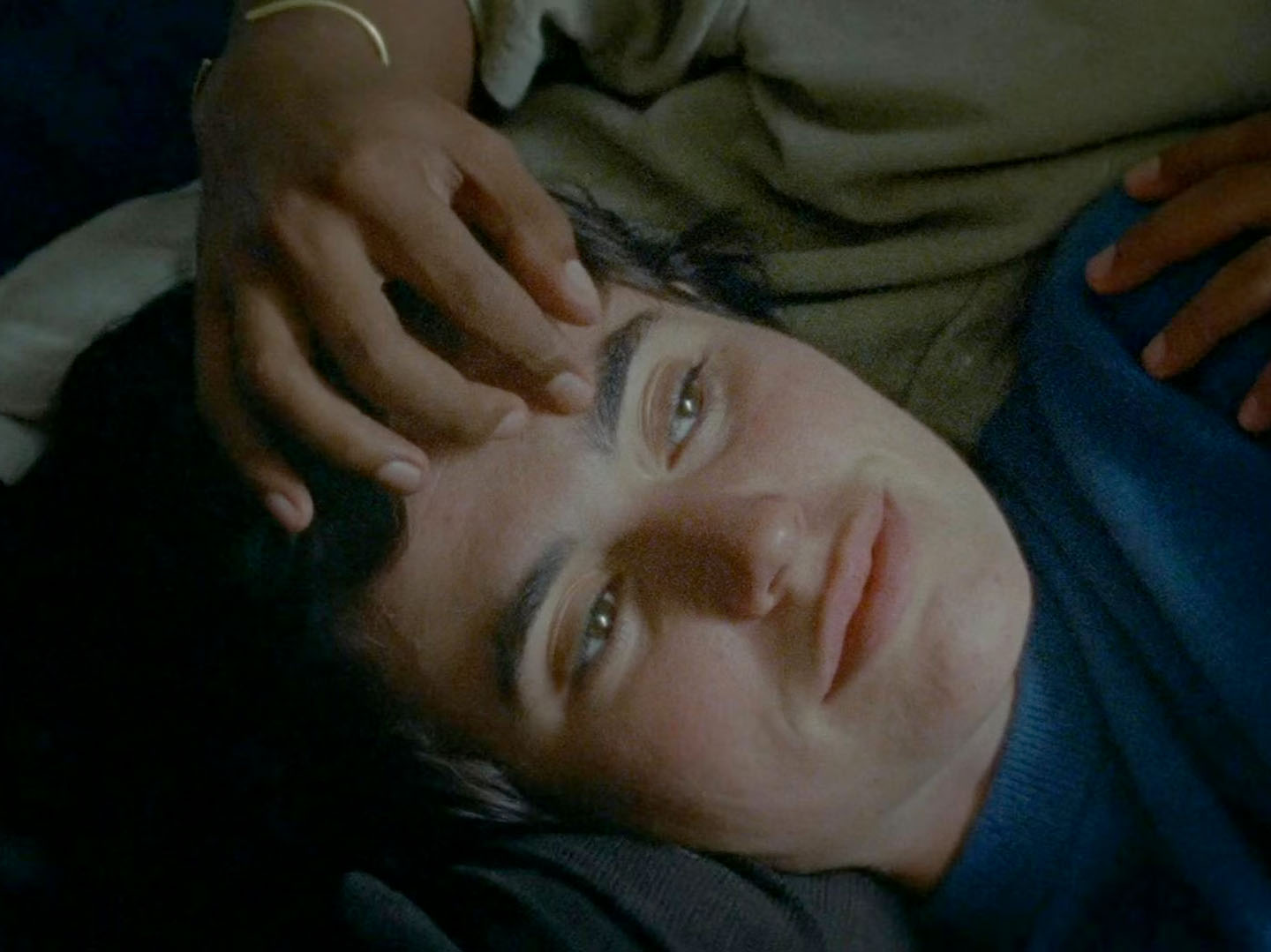
But Lou’s melancholy is ripe with hope. It swells and laps with the canal waves, with every long pause of silence. “Lou-Lou. Jou-Jou,” is the sound of longing, and its colour is blue. A blue “like the waves and like fear,” she adds. Lou wears blue, she stands in front of blue posters or the midnight blue mosaic tiles in her bathroom. At a certain point, a deep imperial blue takes over: an insert of full colour disrupts the visuals, inviting us to dive in. It only lasts a few seconds, and then we’re back to Lou, admiring a tile mural painting. It’s the Cuyperspassage porcelain tunnel at Amsterdam’s Central Station, whose tiles are the traditional white and blue ceramics of Delftware, a Dutch industrial staple since the 17th century. Blue is the colour of fear, “of not being the centre of the world anymore.”
Pacifique’s script is economical in words but rich in feelings; such phrasings reveal that relationship conversations have been had and will be had. By showing the supposed cyclicality of talking about relationships instead of sexually consummating them, the film rejects the need for justifications. Instead, it dwells in the melancholy that comes with one’s inner expansion: moving to a new city, welcoming new partners, as well as partners of your partner. When both your geographical and emotional worlds are expanding, that comes with a tinge of sadness, a piercing grief about the small but easy-to-grasp version of the world you knew before. Expansion can bring liberation or colonialism; human relationships can also veer into either of those two directions.
“I know it hurts,” says Lou in response to her Dutch lover Yannick’s gentle reproach about seeing multiple people simultaneously. They spend the night together though we never see any of that. Instead, we get the fragment of a conversation, an admittance of pain, and a scene of joyful sensuality in the bathroom. What does it mean to be with someone, asks looking she said I forget. There are countless ways of being with somebody, and one of them is showering together. Shared nudity is one thing, but when you lather their skin with soap as you trace your fingertips all over the glossy surface that is their body, that’s a whole other story. Lou and Yannick shower, but they also create a wordless narrative, their bodies telling the story instead.
In one of the film’s carefully chosen close-up scenes, the camera follows Lou’s hand over Yannick’s back for a while, and the tension of this tactile shot has little to do with arousal. In moments like these, both visual and aural, Pacifique locates a pure form of intimacy that is unlike anything else we’ve seen bodies share on screen. The same hand, then, slides down to his thighs and—now in a medium shot and amidst a chuckle—takes hold of his penis. He pees while she’s holding it for him. Their shared laughter is so tender that even its echo in the wide bathroom feels soft.
looking she said I forget may be as anti-narrative as much as non-monogamy is anti-narrative, but the narratives of intimacy are by default non-linear. They twist and turn, they reverberate and refract, and yet give home to a simple truth: to be loved is to be seen.

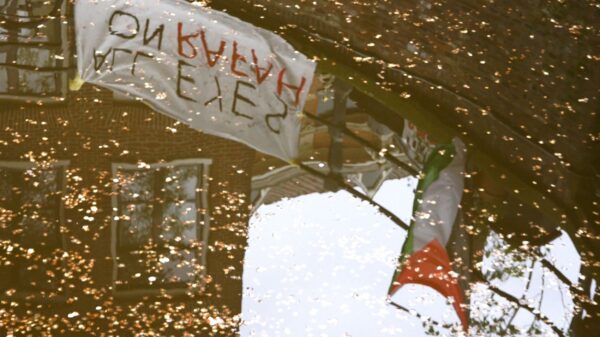
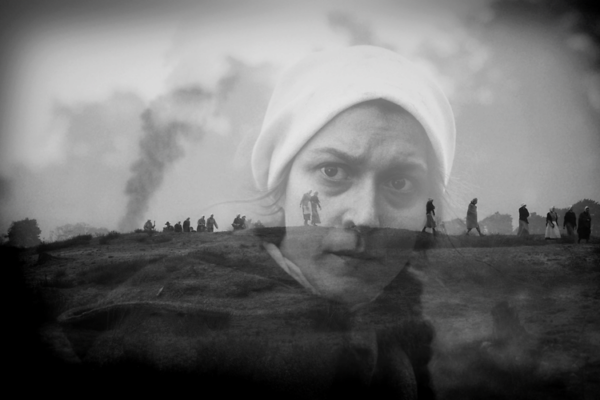
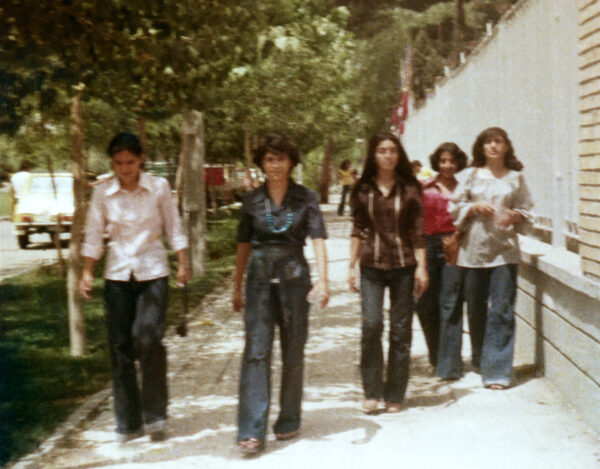

There are no comments yet, be the first!